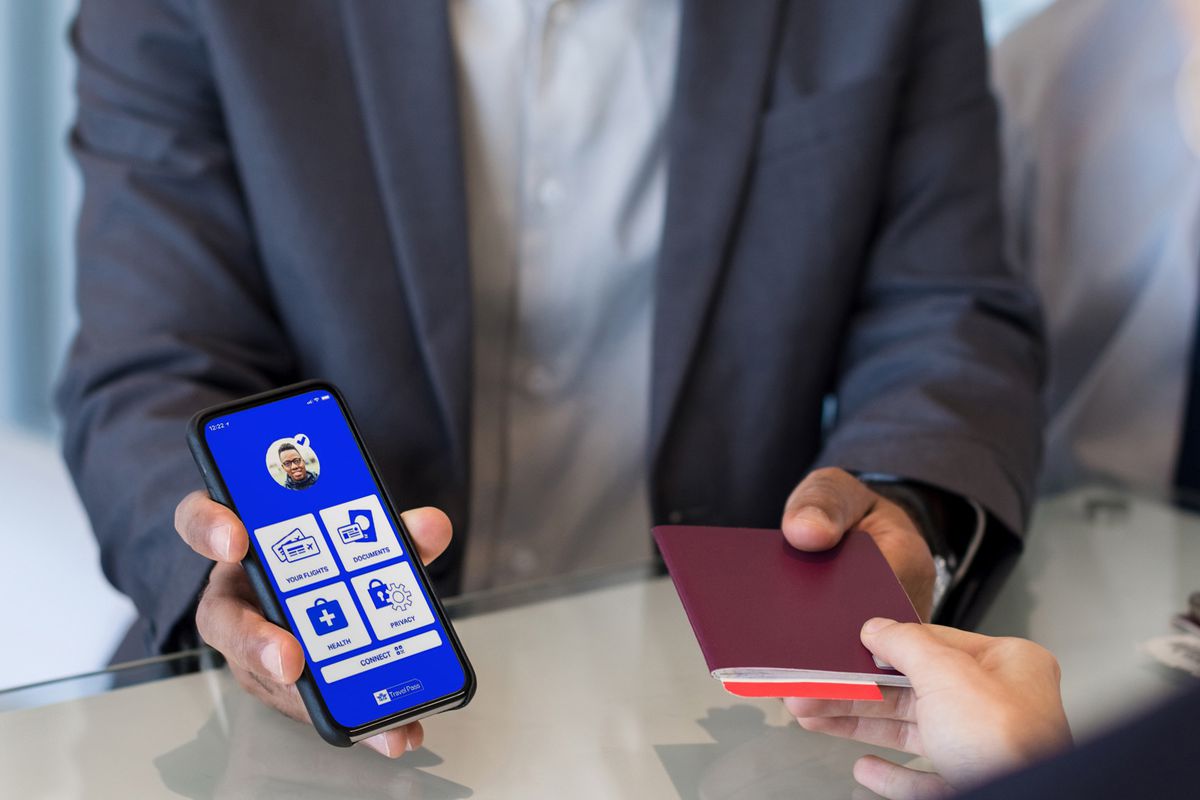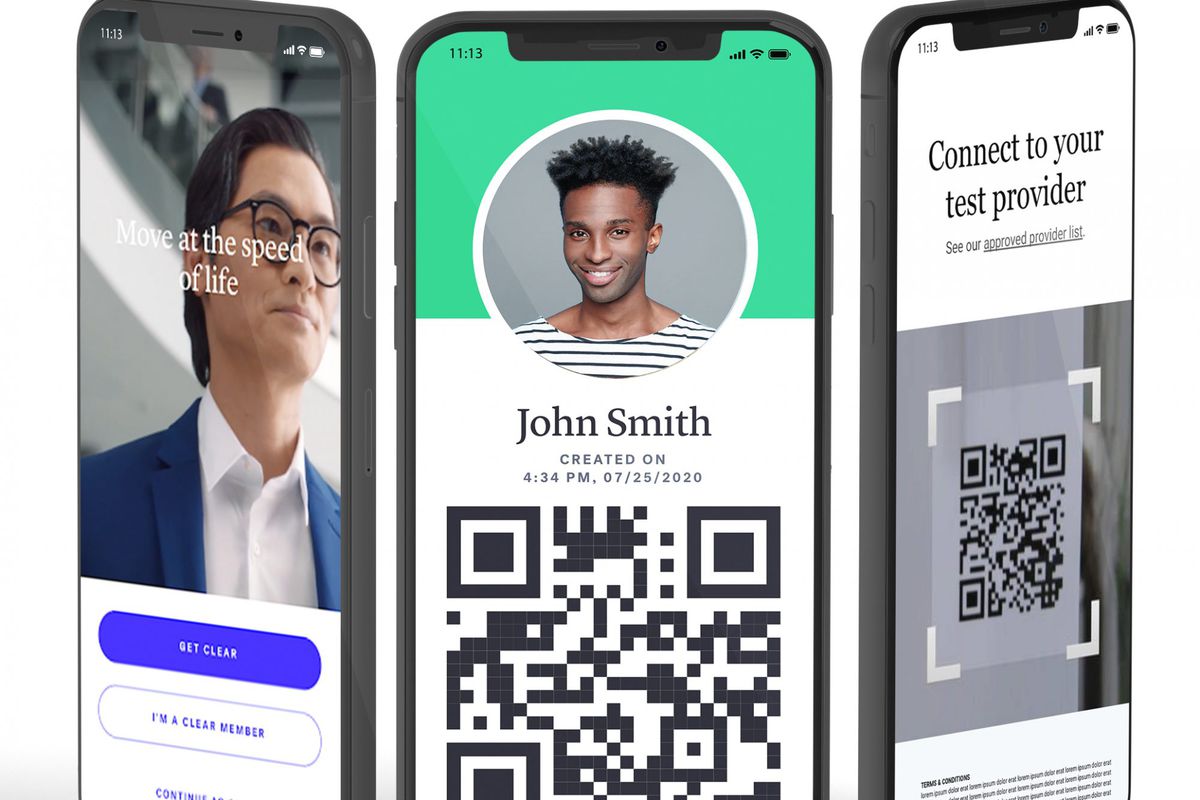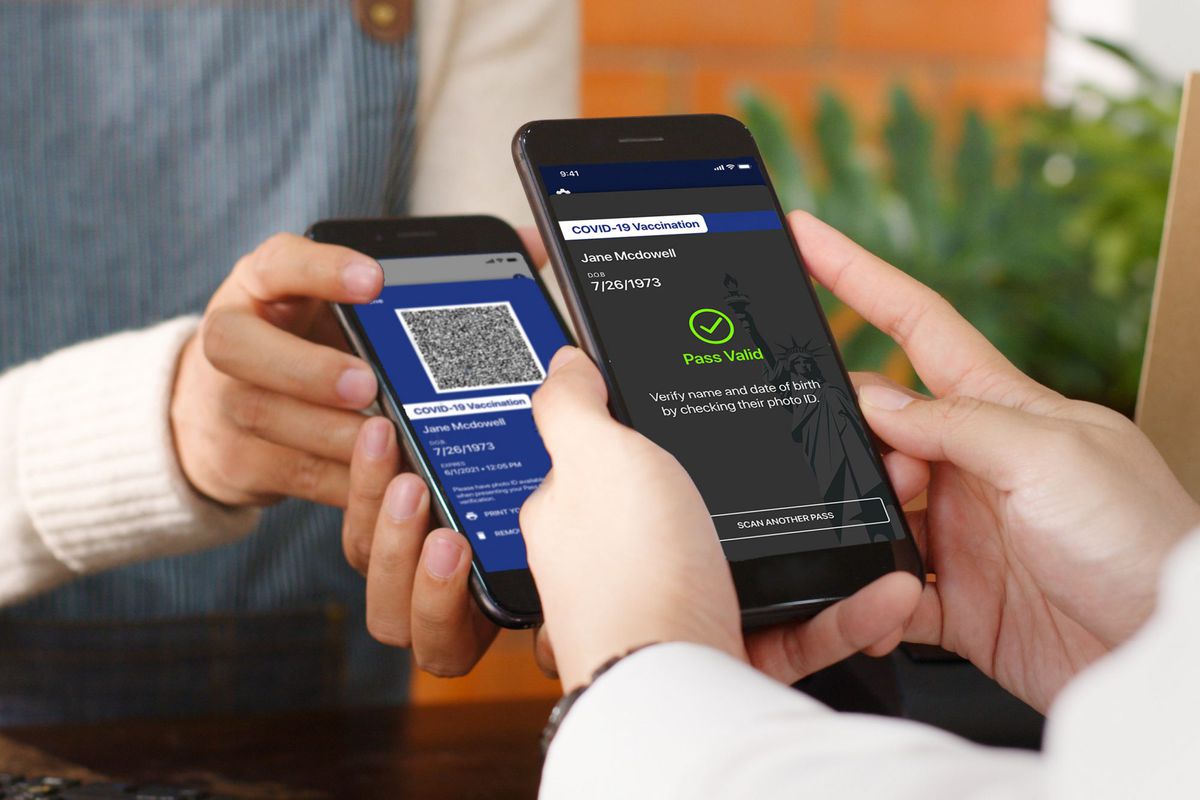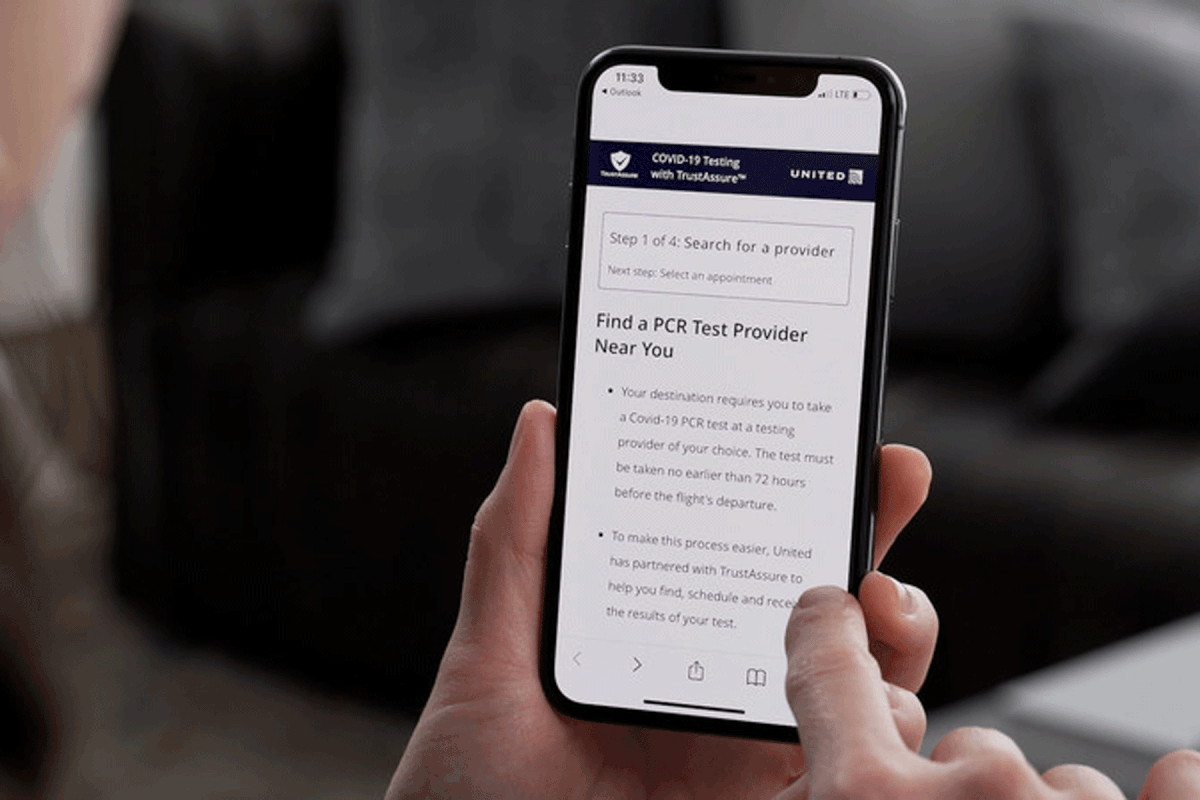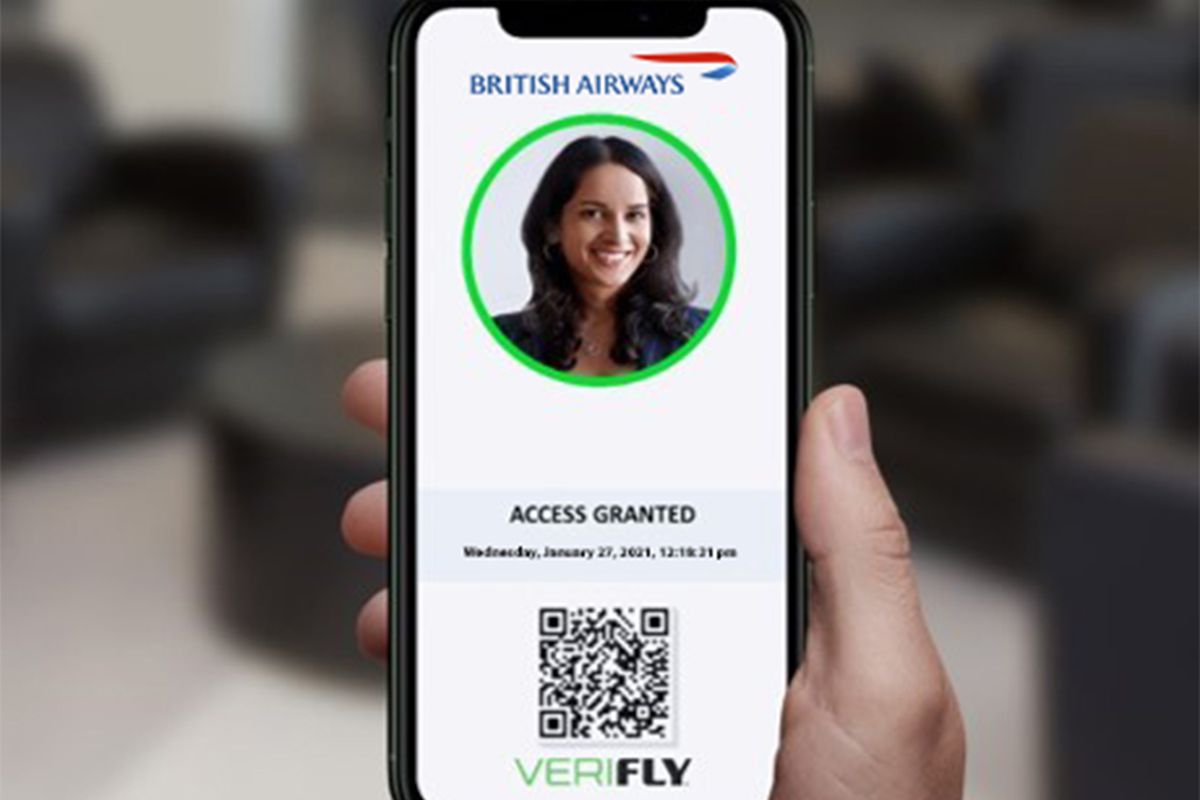
As travel is starting to pick up around the world, many destinations require proof of either a vaccination, COVID-19 antibodies, or a negative test — which lately, can all be found in the form of a vaccine passport.
These days, a vaccine passport tends to be a digital app capable of pulling up and storing a traveler's health records and generating a QR code to show authorities at venue entrances and beyond.
There are several platforms out there, and which one travelers need will likely depend on where they want to go and how they plan to get there. App companies have also partnered with everything from airlines to cities to restaurants and sports arenas, and each has its own way of storing personal information.
Below, we break down the different vaccine passports available and what travelers need to know about each one.
Clear Health Pass
Clear, known for using biometrics to help people breeze through airport security, has developed a health pass app that will store lab results, health surveys, and, eventually, vaccine certificates.
The app has access to more than 30,000 labs, which are used to pull up a user's records. Users then take an in-app selfie to verify their identity. Health Pass is currently being used at several venues, including in restaurants owned by Danny Meyer.
The health pass is free, but users — 18 and older — must enroll in Clear to access it.
Clear said it never sells or rents user's data or personal information.
Find out more: Clear Health Pass
CommonPass
The CommonPass is a partnership between several groups, including The Commons Project and The World Economic Forum, and will be able to hold lab results as well as vaccination records and health declarations.
Users pull up their records inside the app, which is then accessed through "existing health data systems, national or local registries or personal digital health records." The app then generates a "yes" or "no" and a QR code if the person meets the entry criteria.
Underlying health information is not shown.
Several airlines and destinations, including United Airlines, Cathay Pacific, and Aruba, have partnered with the pass.
Find out more: CommonPass
Excelsior Pass
This New York-run pass is state specific, and allows people to pull up test or vaccination records from New York State sites. The pass generates a QR code that can be scanned from the app or printed on the Excelsior Pass website.
The Excelsior pass is not used for travel, but to access venues that require proof of vaccination or a negative test result, like sports games and concerts. PCR test results expire after three days, a vaccine card expires after six months, and antigen test results expire after 6 hours.
Built with IBM's Digital Health Pass solution, the digital platform does not share underlying medical and personal information, nor store or track private health data.
Find out more: Excelsior Pass
IATA Travel Pass
Developed by the International Air Transport Association, the IATA pass has become very popular with airlines. The pass allows labs to securely send test results or vaccination records to customers in the app and then verifies those results meet entry requirements with a QR code.
When it comes to security, IATA said "sensitive data is not stored on a centralized database."
A slew of airlines have signed up to trial the pass, including Qantas, Qatar Airways, Air New Zealand, Etihad Airways, and Emirates.
Find out more: IATA Travel Pass
United Travel Ready Center
This pass, unique to United Airlines flights, allows passengers to upload test or vaccination records to comply with specific requirements based on their booked trips. After they have done so, a United employee reviews them and clears them for check-in, allowing passengers to pull up a boarding pass before heading to the airport.
Travelers can also choose to book a test directly through the platform.
Find out more: United Travel Ready Center
VeriFLY
This app has been adopted by several airlines, like American Airlines and British Airways, and allows passengers to pull up their negative test results. Currently, the app does not support vaccination records.
To use the app, people need to create an account and take a selfie. The app then walks users through a checklist of requirements and generates a QR code they can use at either a checkpoint kiosk or show to a checkpoint staff member.
In addition to storing health information, Denver International Airport used the app for several months to facilitate social distancing, allowing people to reserve 15-minute windows to pass through a dedicated VeriFLY lane for security screening. That program will end April 30, 2021.
Find out more: VeriFLY
Alison Fox is a contributing writer for Travel + Leisure. When she's not in New York City, she likes to spend her time at the beach or exploring new destinations and hopes to visit every country in the world. Follow her adventures on Instagram.
Source: Read Full Article










